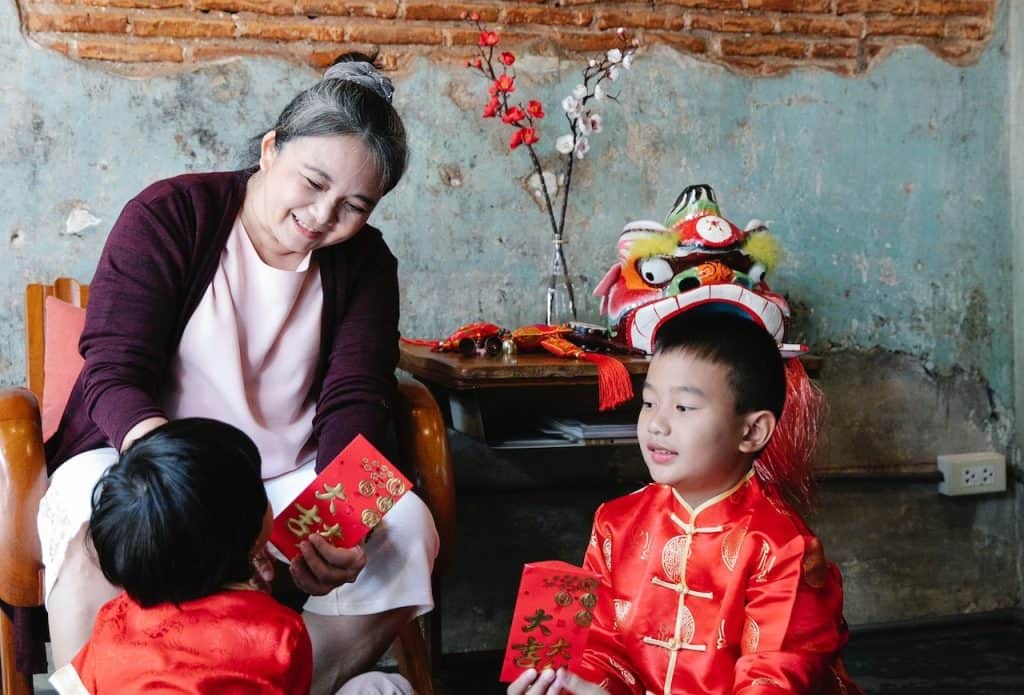Most grandparents enjoy spoiling their grandchildren with material gifts. However, excessive gift-giving, with money or with any other expensive stuff, can result in unmanaged expectations for children. In addition, this may also put the relationship between your children and their grandparents at risk in the long run.
With that in mind, properly managing the expectations of children is essential, especially when it comes to gift-giving. It would be helpful to establish the fact that gifts are a form of love and appreciation, not a measure of them, as early as possible.
Letting your child create unrealistic expectations about money can also result in entitlement, selfishness, and an even more negative impact on their behavior down the line. Over time, they may even become more focused on receiving gifts and materialistic things than actually spending quality time with the people that truly matter.
How to Deal With Grandparents Buying too Many Gifts?
When it comes to managing gift-giving expectations between grandparents and their families, you have to be extremely careful if you want to find just the right balance that will work for everyone. It will most likely come as a challenge, especially for first-time parents.
But through the implementation of some practical strategies, such as those outlined below, it is entirely possible to set clear expectations and boundaries for both the child and the grandparents. In the long run, doing so would help ensure a positive and enjoyable experience for everyone.
1. Communicate Openly

You should try to have open and honest communication with the grandparents about their excessive gift-giving habits. Explain the potential negative impact on children and discuss ways to find a balance that works for everyone. For example, agree on a reasonable number of gifts per occasion or establish a budget for gift-giving.
2. Set Clear Boundaries
If the grandparents are buying too many presents or visiting too much, it is not okay. So try to be firm and clear about what gifts are fine for your child to have and what presents are not okay for them to play with.
You should also let the grandparents know that it’s okay to not be able to afford gifts. In addition, explain to them that saying no to requests that the children have made that they deem too expensive or inappropriate is completely all right.
3. Encourage Non-Material Gifts
While material gifts may be the first thing that comes to mind when it comes to showing love and appreciation, the American Association of Retired Persons (AARP) suggests that spending quality time with children, taking them on outings or vacations, or simply telling them how much they are loved can be just as meaningful.
As such, it’s important to encourage grandparents to find alternative ways to bond with their grandchildren and express their affection beyond gift-giving.
4. Create a Savings Account
Another thing that you should also consider is the possibility of setting up a savings account that the grandparents can contribute to for their grandchildren. This way, they not only contribute to their future but also teach children the value of saving money.
5. Be Mindful of Cultural Differences

Keep in mind that each culture has its own unique attitude towards gift-giving, and this can be an important factor to consider when managing gift-giving expectations with grandparents.
If the grandparents come from a culture where gift-giving is seen as a significant way of showing affection, it can be helpful to have an open discussion about these cultural differences and work together to find the right balance that would work best for the child.
6. Limit Gift-Giving Occasions
If the grandparents are buying too many gifts, another important thing to consider is to limit the number of gift-giving occasions throughout the year. You can also suggest to the grandparents that they combine gifts for several occasions into one larger, more meaningful gift. This will not only reduce the amount of clutter in your home but also ensure that the gifts remain special and meaningful to the children.
This will not only reduce the amount of clutter in your home but also ensure that the gifts remain special and meaningful to the children.
7. Teach Gratitude
Encourage your child to express gratitude and appreciation for the gifts they receive from their grandparents. Giving the old people a hug or even a small “thank you” will surely go a long way and could even help the child build character. In time, this kind of behavior helps them focus on the things that really matter in life. But for now, it teaches them that the meaning behind the gift is more important than its material value.
8. Involve Grandparents in Other Ways
If the grandparents tend to buy too many gifts, encourage them to be involved in their grandchildren’s lives in other ways. For example, they could attend school plays or sporting events, help with homework or school projects, or even teach their grandchildren a new skill.
9. Understanding the Role of Grandparents in Managing of Gift-Giving Expectations
The role of grandparents in managing their grandchildren’s expectations around gift-giving is a delicate matter. But by being mindful of their gift-giving habits and encouraging their grandchildren to focus on the meaning behind gifts, grandparents can instill important values in their grandchildren. This is especially important in a culture where materialism reigns supreme.
Bonding with grandchildren does not have to revolve around material possessions. Rather, grandparents can share stories, cook together, or participate in activities that they both enjoy. By doing so, they can create lasting memories and deepen their relationships. These shared experiences can also help to shape the values and beliefs of the grandchildren.
It is important for grandparents to understand that their unconditional love and support are invaluable to their grandchildren. Gift-giving is just one way of expressing that love. In fact, excessive gift-giving can have negative consequences, and it is crucial to remind grandparents of this regularly.
Final Thoughts
Raising a child to be the best version of themselves is no easy task. As if that weren’t enough, every child is unique as well, so a technique that worked in one does not necessarily mean that it will work in another.
Even so, it’s extremely important to manage gift-giving expectations the best you can so that children can learn that gifts are a way of showing love and appreciation rather than a way of measuring it.
This can be achieved by solidifying the efforts of every family member and working in unison to find the balance that works for everyone. In turn, this would allow the grandparents to continue showing their love and support for their grandchildren while also promoting positive behavior and relationships in the little ones.